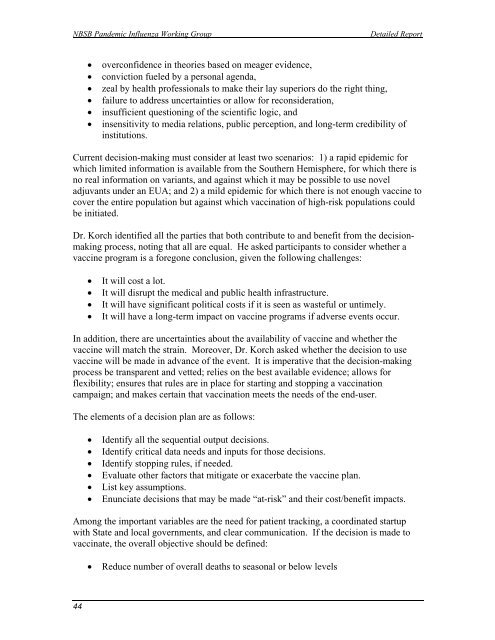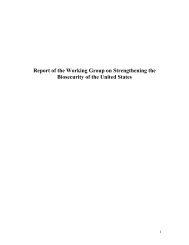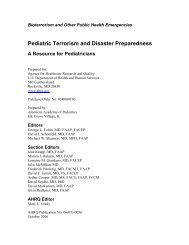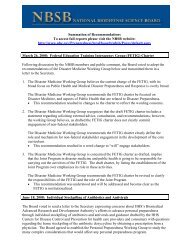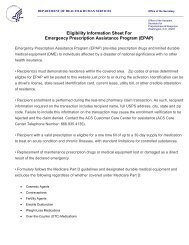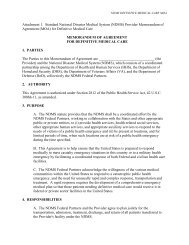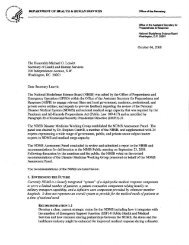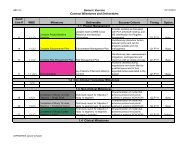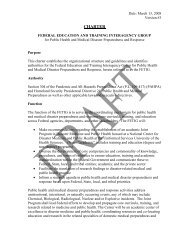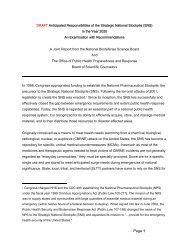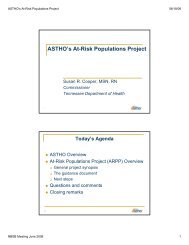H1N1 COUNTERMEASURES STRATEGY AND ... - PHE Home
H1N1 COUNTERMEASURES STRATEGY AND ... - PHE Home
H1N1 COUNTERMEASURES STRATEGY AND ... - PHE Home
You also want an ePaper? Increase the reach of your titles
YUMPU automatically turns print PDFs into web optimized ePapers that Google loves.
NBSB Pandemic Influenza Working Group<br />
Detailed Report<br />
<br />
<br />
<br />
<br />
<br />
<br />
overconfidence in theories based on meager evidence,<br />
conviction fueled by a personal agenda,<br />
zeal by health professionals to make their lay superiors do the right thing,<br />
failure to address uncertainties or allow for reconsideration,<br />
insufficient questioning of the scientific logic, and<br />
insensitivity to media relations, public perception, and long-term credibility of<br />
institutions.<br />
Current decision-making must consider at least two scenarios: 1) a rapid epidemic for<br />
which limited information is available from the Southern Hemisphere, for which there is<br />
no real information on variants, and against which it may be possible to use novel<br />
adjuvants under an EUA; and 2) a mild epidemic for which there is not enough vaccine to<br />
cover the entire population but against which vaccination of high-risk populations could<br />
be initiated.<br />
Dr. Korch identified all the parties that both contribute to and benefit from the decisionmaking<br />
process, noting that all are equal. He asked participants to consider whether a<br />
vaccine program is a foregone conclusion, given the following challenges:<br />
<br />
<br />
<br />
<br />
It will cost a lot.<br />
It will disrupt the medical and public health infrastructure.<br />
It will have significant political costs if it is seen as wasteful or untimely.<br />
It will have a long-term impact on vaccine programs if adverse events occur.<br />
In addition, there are uncertainties about the availability of vaccine and whether the<br />
vaccine will match the strain. Moreover, Dr. Korch asked whether the decision to use<br />
vaccine will be made in advance of the event. It is imperative that the decision-making<br />
process be transparent and vetted; relies on the best available evidence; allows for<br />
flexibility; ensures that rules are in place for starting and stopping a vaccination<br />
campaign; and makes certain that vaccination meets the needs of the end-user.<br />
The elements of a decision plan are as follows:<br />
<br />
<br />
<br />
<br />
<br />
<br />
Identify all the sequential output decisions.<br />
Identify critical data needs and inputs for those decisions.<br />
Identify stopping rules, if needed.<br />
Evaluate other factors that mitigate or exacerbate the vaccine plan.<br />
List key assumptions.<br />
Enunciate decisions that may be made “at-risk” and their cost/benefit impacts.<br />
Among the important variables are the need for patient tracking, a coordinated startup<br />
with State and local governments, and clear communication. If the decision is made to<br />
vaccinate, the overall objective should be defined:<br />
<br />
Reduce number of overall deaths to seasonal or below levels<br />
44


